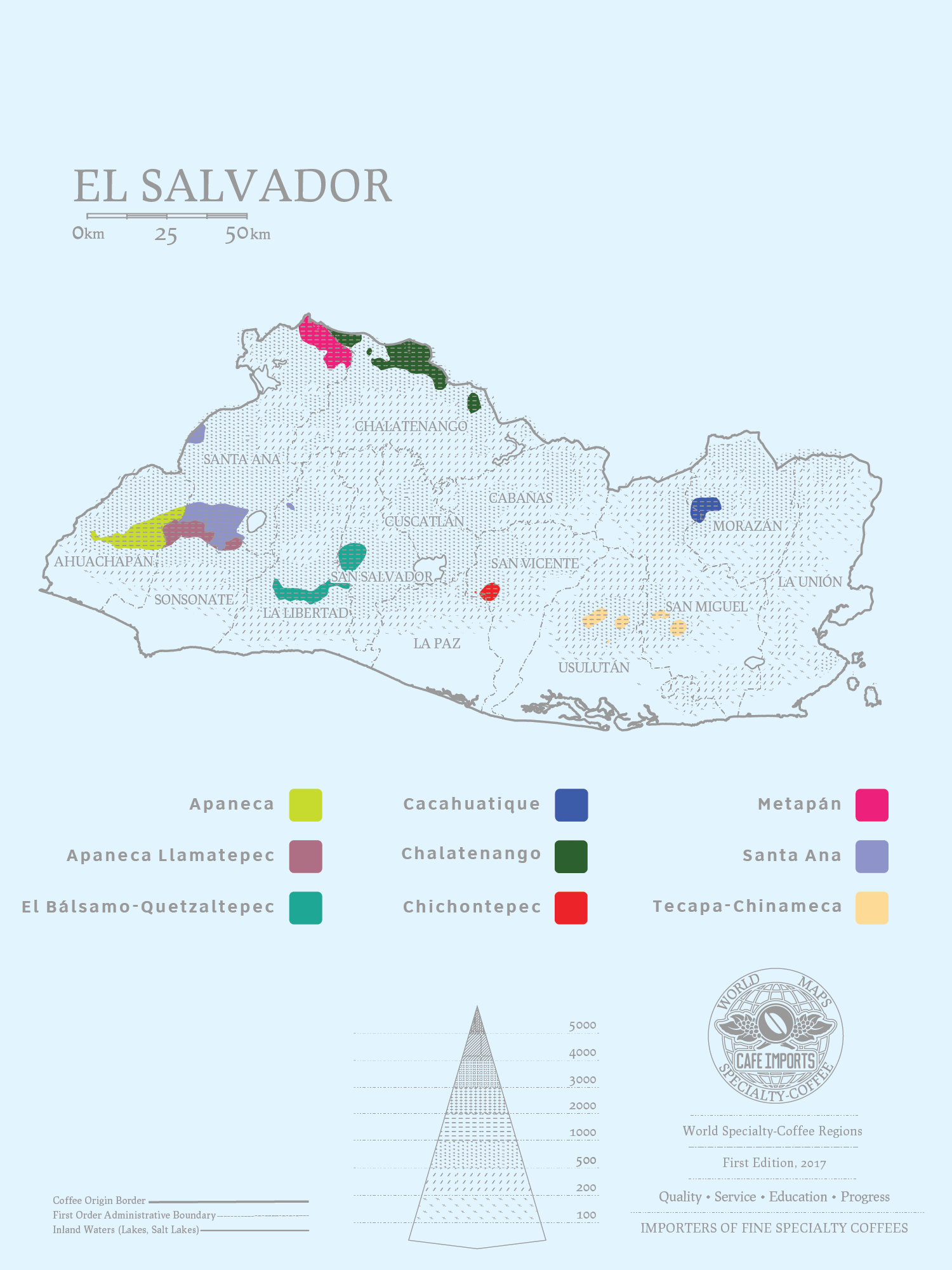0
CHECK THE PRODUCTS
Region: Apaneca Ilamatepec, Ahuachapan
Farm: Finca El Cerro
Farmer: Fernando “Leto” Escobar
Variety: pacamara
Process: semi washed
Altitude: 1500masl
Harvest: 2023/24
Supplier: Belco
Espresso/Brew
250 gr Whole bean :
1kg whole bean :



Notes Of A Roaster From The Underground: roasted nuts, apricot, mellow
Espresso/Brew
El Cerro is a farm located on the Apaneca llamatepec mountain range, near the town of Apaneca. The altitude of El Cerro is ideal for producing excellent speciality coffees. It has been in the family of Fernando "Leto" Escobar for 5 generations.
He replaced the old coffee trees, which were struggling to produce, with new varieties adapted to the farm's climate and separated into different sections to guarantee fine traceability.
This natural Pacamara from the El Cerro farm is produced in the shade of trees. They ensure that the coffee trees are well nourished and that the cherries develop as well as possible.
During the harvest period, between December and February, pickers are trained to select only fully ripe cherries. This allows El Cerro and its producer Fernando Leto to offer you the full potential of this coffee.
This taste for perfection can also be found in the process, which is carried out directly on the farm. Here, a natural process. This process is carried out directly on the farm, to ensure total monitoring of production, from planting to export of the coffees
It's worth noting that, at the time, he had another job as well as working on the farm. Over time, however, coffee became a passion for him, and in 2016 he decided to devote himself 100% to El Cerro.
Now a Q-Grader, he later set up his own washing station to process his coffees before exporting them. Today, thanks to his work, El Cerro is a renowned farm in El Salvador, and Fernando 'Leto' Escobar a respected producer.
12 people work at El Cerro all year round. At harvest time, around thirty seasonal workers join them to pick the cherries by hand and process them at the El Cerro wetmill.
Although the entire farm is dedicated to coffee production, it is surrounded by a dense forest with a rich biodiversity. The coffee trees grow under the shade of indigenous trees
that were there long before the farm was built.
This forest provides plenty of moisture and nutrients to the soil, generating compost whose nutrients are carried to the foot of the coffee trees by the rain.

Known as “the land of volcanoes,” El Salvador is the smallest Central American country (roughly the same size as New Jersey), but its reputation among specialty-coffee-growing regions has grown larger-than-life, especially since the early 2000s. While coffee was planted and cultivated here mostly for domestic consumption starting in the mid-1700s, it became a stable and significant crop over the next 100 years, notably increasing in national importance during the late 1800s, when the country’s indigo exports were threatened by the development and widespread marketability of synthetic dyes.
As coffee grew in economic importance, different government programs designed to increase production through land, tax, and military-exemption incentives created a small but strong network of wealthy landowners who gained control over the coffee market, in addition to the individual smallholders who were growing coffee as part of their subsistence farming and would sell their cherry to the larger estates or to mills.

By the late 1970s coffee exports accounted for 50 percent of the GDP, but socioeconomic and political unrest hurled the country into civil war for more than a decade, and in the 1980s various land-redistribution projects and agrarian reform disjointed the coffee industry and caused the market to decline. Lacking the resources to continue farming, producers abandoned their coffee farms, and many were left overgrown and unharvested for years until a peace agreement was reached in the 1990s.
It is often said that the Cup of Excellence competition, which came to El Salvador in 2003, was the beginning of the new “wave” of interest in Salvadoran coffee, shining the first light on some of the special varieties the small country grows.
